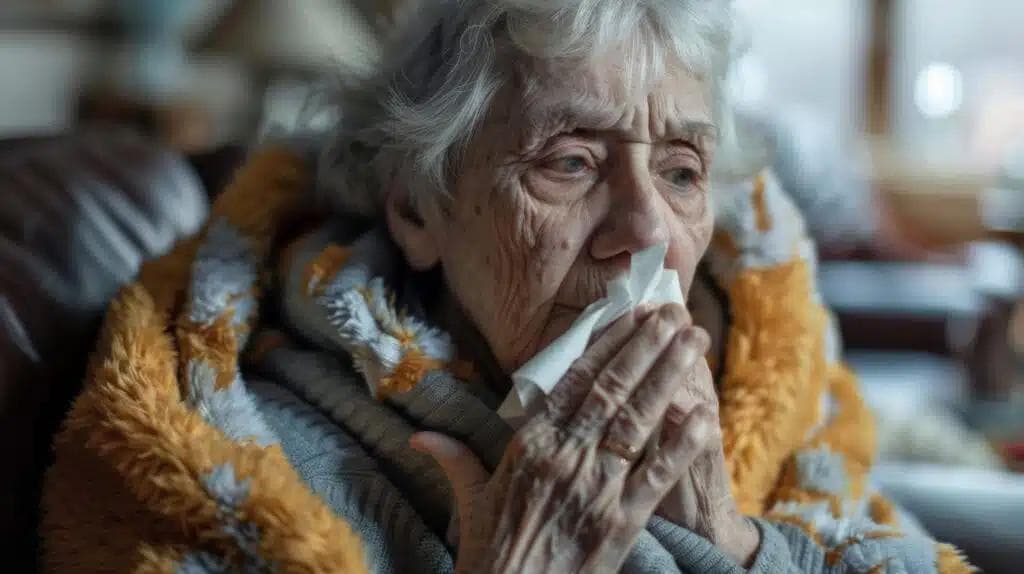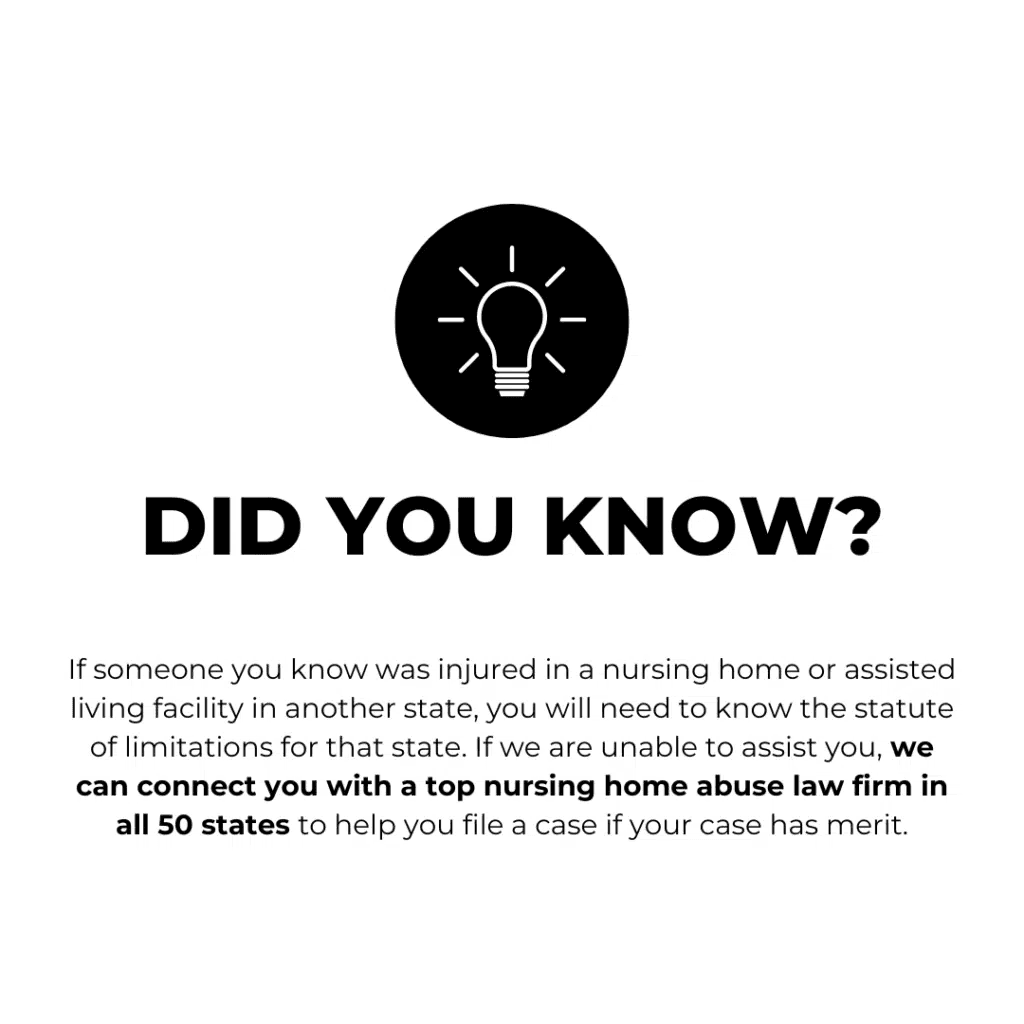
Nursing home abuse and neglect put vulnerable residents at serious risk, leading to malnutrition, dehydration, infections, and preventable injuries. When facilities fail to provide adequate care, residents suffer, and families are left feeling helpless. Lack of supervision, improper medical treatment, and unsafe conditions can result in devastating harm. Understanding the warning signs, knowing your legal rights, and holding negligent facilities accountable are crucial steps in protecting your loved ones. Learn how to take action and seek justice.
November 5, 2024
3 min
As flu season approaches, nursing homes face increased challenges in protecting their residents from the severe risks of influenza. Elderly individuals, particularly those in long-term care facilities, are more vulnerable to complications from the flu, such as pneumonia, hospitalization, and even death. With weakened immune systems and existing health conditions, nursing home residents are at a significantly higher risk of serious illness during flu season.
Nursing homes must take proactive steps to prepare and safeguard their residents. Proper preparation includes enforcing infection control measures, vaccinating residents and staff, and implementing policies that limit the spread of the virus. Beyond being a best practice, ensuring the health and safety of nursing home residents during flu season is a legal responsibility. Failure to comply with established guidelines and protocols can expose nursing homes to legal liability if residents suffer due to preventable outbreaks. This article explores how nursing homes can meet their obligations and protect residents during the upcoming flu season.
Elderly individuals, especially those living in nursing homes, are significantly more vulnerable to the flu and its potentially life-threatening complications. Even a mild flu season can pose serious health risks for nursing home residents, making it crucial for facilities to take extra precautions to protect their vulnerable populations.
Statistics underscore the gravity of flu-related illness in nursing homes. According to the Centers for Disease Control and Prevention (CDC), approximately 70-85% of seasonal flu-related deaths occur in people aged 65 and older, and a large percentage of those deaths occur in nursing home settings. Flu outbreaks in these facilities can spread rapidly, often affecting many residents and staff, increasing mortality and strain on healthcare resources. This makes preventive measures not just a recommended practice but a critical component of resident care.
Preventive strategies are vital in reducing the spread of flu within nursing homes. By implementing comprehensive infection control protocols, such as vaccinating residents and staff, regularly disinfecting high-touch areas, and isolating infected individuals, facilities can significantly lower the risk of outbreaks. These measures protect individual residents and prevent larger-scale health crises within long-term care environments.
Facilities must follow strict infection control guidelines to protect nursing home residents from the flu to prevent outbreaks. These protocols address vital areas such as vaccination, personal protective equipment (PPE), and hygiene practices to ensure the safety of residents and staff.
Nursing homes are legally obligated to offer flu vaccinations to residents and staff. Vaccination is one of the most effective methods to reduce flu transmission, and nursing homes must prioritize early vaccinations. By ensuring that most residents and staff are vaccinated before flu season peaks, facilities can achieve high immunization rates, critical for protecting individuals most vulnerable to severe flu complications. A strong vaccination program lowers the risk of illness and demonstrates the facility’s commitment to upholding its legal responsibilities for resident safety.
Properly using personal protective equipment is another critical element of infection control. Nursing homes are required to provide adequate PPE, such as masks, gloves, and gowns, to both staff and visitors to prevent the transmission of the flu virus. These protective barriers help minimize the risk of cross-contamination between residents, staff, and visitors, especially during close-contact care activities. Nursing homes must ensure that PPE is readily available, properly fitted, and used by infection control protocols, as failing to provide this equipment can lead to legal consequences if an outbreak occurs.
Maintaining proper hand hygiene is essential in preventing the flu virus spread in nursing homes. Facilities must enforce mandatory handwashing protocols for all staff, requiring frequent washing with soap and water or using alcohol-based hand sanitizers. In addition, nursing homes should implement a routine cleaning schedule focused on the disinfection of high-touch surfaces, such as door handles, light switches, and medical equipment. Regular sanitization of these areas helps reduce the risk of virus transmission and ensures a safer environment for residents and staff.
By following these infection control guidelines, nursing homes can create a safer, healthier environment during flu season, fulfilling their ethical and legal responsibilities to protect their residents.

To prevent flu outbreaks in nursing homes, minimizing resident exposure to infected individuals is essential through vigilant screening and visitor management policies.
Nursing homes should implement daily screening procedures for residents, staff, and visitors to detect flu-like symptoms early. This involves checking for common signs of the flu, such as fever, cough, and sore throat. By identifying symptomatic individuals early, nursing homes can quickly isolate them, reducing the risk of the virus spreading to others. Isolation policies are crucial to preventing widespread infection, especially in communal living settings where the flu can quickly spread if not contained.
During flu season, nursing homes have the legal authority to limit or manage visitor access to protect their residents. Facilities may enforce stricter visitor health screenings, ensuring no one with flu-like symptoms enters the premises. Nursing homes can also set guidelines requiring visitors to wear personal protective equipment (PPE) and adhere to hygiene protocols during visits. These measures help reduce the chances of flu being introduced from outside sources.
By implementing thorough screening and visitor control measures, nursing homes can effectively reduce the chances of flu outbreaks and protect their vulnerable residents during flu season.
Nursing homes may face significant legal consequences when they fail to protect their residents during flu season. The facility can be liable if an outbreak occurs due to negligence, such as inadequate infection control practices or failure to provide necessary vaccinations. Legal action can include lawsuits for damages related to illness, suffering, or even wrongful death if the flu results in severe complications or fatalities that could have been prevented with proper care.
Several case studies illustrate the legal repercussions for nursing homes that did not adequately protect their residents. For instance, some facilities have faced substantial lawsuits following flu outbreaks where improper sanitation, inadequate staff training, or failure to implement effective vaccination programs contributed to the spread of the virus. These cases often result in significant financial penalties and damage the facility’s reputation, highlighting the critical importance of maintaining stringent infection control measures.
Families who believe their loved ones have suffered due to inadequate care during flu season can pursue legal action by documenting evidence of negligence or malpractice. This may include records of the facility’s infection control practices, medical records showing the impact of the flu, and testimonies from staff or other residents. Consulting with an attorney who specializes in nursing home abuse and neglect can help families navigate the legal process and seek compensation for their loved one’s suffering.
As flu season approaches, proactive measures are crucial in safeguarding nursing home residents from severe illness and complications. Ensuring that facilities are prepared—through vaccinations, proper use of PPE, and strict hygiene protocols—is not only a moral obligation but also a legal one. Nursing homes must adhere to these guidelines to protect their residents and avoid legal repercussions.
Families also play a vital role by staying informed and vigilant. Regularly checking that the nursing home complies with infection control regulations and advocating for proper care can help prevent outbreaks and ensure the well-being of loved ones. Working together can help create safer environments and protect our most vulnerable populations during flu season.
Michael Hill is a nationally recognized attorney who handles exclusively cases against long term care facilities. Michael and his firm, Michael Hill Trial Law, handle cases across the country.
Disclaimer: This information is provided for informational purposes only. Nothing in this article should be construed as providing legal advice or the creation of an attorney client relationship. Laws are updated frequently and change from state to state. If you desire legal advice, you can contact Michael Hill Trial Law at www.protectseniors.com, send an email to info@protectseniors.com, call (800) 659-2712 to begin an investigation, or contact another attorney.